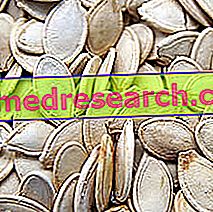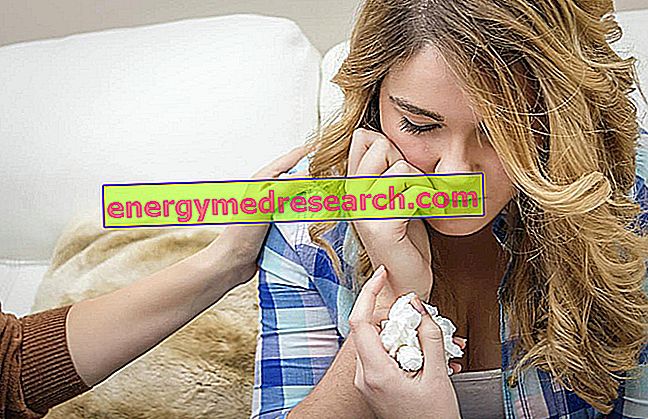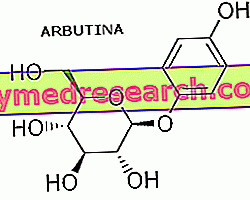
Scientific name
Cucurbita pepo
Family
Cucurbitaceae
Origin
Pumpkin is a plant native to America, today cultivated ubiquitously in warm and temperate climates.
Used Parts
Drug consisting of ripe and dried pumpkin seeds or lipid-sterol extract of seeds.
Chemical constituents
- triterpenes;
- Fitosterine;
- Vitamin E;
- Protein;
- Minerals (selenium);
- Fatty acids;
- pectin;
- Salicylic acid;
- Lignans;
- Cucurbitina.
The main constituent is however the oil (30-50%) with its content of fatty acids including oleic (24-38%), linoleic (43-56%), tocopherols and carotenoids (lutein and β-carotene).
Pumpkin in Herbal Medicine: Properties of the Pumpkin
Pumpkin seeds have always been considered an excellent remedy against intestinal worms; today they are proposed for the treatment of disorders related to prostatic hypertrophy, thanks to the anti-inflammatory, antioxidant and enzymatic activity.
Biological activity
Pumpkin has been attributed to anthelmintic properties due to the cucurbitin contained in the pumpkin itself. Furthermore, pumpkin seeds have proved quite effective in countering the characteristic symptoms of benign prostatic hypertrophy and overactive bladder, so that their use has been officially approved for this type of therapeutic application.
It appears that the fatty acids contained in the seeds are among those responsible for the aforementioned activities, but the ability to generate improvement in patients suffering from benign prostatic hyperplasia is undoubtedly attributed to the delta-phytosterols present in the same seeds.
The exact mechanism with which these molecules counteract benign prostatic hypertrophy is not yet fully understood, but some studies have shown that delta-phytosterols are able to interfere with the transformation of testosterone into dihydrotestosterone (DHT) in fibroblast cultures human prostates.
Some hypothesize that phytosterols inhibit the action of 5-alpha-reductase (the enzyme responsible for the synthesis of DHT); others, however, suggest that the delta-sterols present in pumpkin seeds hinder the binding of DHT to androgen receptors, thus preventing the overgrowth of prostate cells.
Potential anti-diabetic effects are also being investigated. In fact, from studies conducted on animals, it would seem that both the seeds and the pulp of the pumpkin may be able to exert a hypoglycemic action.
Not surprisingly, pumpkin has long been used in China to reduce blood glucose levels and to increase insulin levels. However, before approving this further therapeutic application of the pumpkin, more and more in-depth clinical studies are needed.
Pumpkin against benign prostatic hypertrophy and against overactive bladder
As mentioned above, pumpkin seeds have proven to be a valid aid in the treatment of benign prostatic hypertrophy and overactive bladder, thanks to the activity carried out by phytosterols and, probably, also by the fatty acids contained within the same seeds.
As an indication, the generally recommended dose is 10 grams of whole or ground ripe seeds, to be taken once a day as a single dose, or in divided doses.
In the case in which, instead, pumpkin seed oil is used, the usually recommended dose is about 300 mg a day.
Pumpkin in folk medicine and in homeopathy
Popular medicine has long recognized the potential healing properties of pumpkin and, for this reason, this plant is used in this area to treat different types of disorders.
Some uses of the pumpkin in folk medicine are quite plausible, such as, for example, the use of this plant to counter intestinal worm infestations. In fact, the cucurbitin has then shown to possess anthelmintic properties. Furthermore, pumpkin is also used in folk medicine as a remedy for inflammation of the kidneys.
Pumpkin is also available as a homeopathic remedy - generally in the form of granules - with indications for the treatment of nausea, gravid nausea, seasickness and teniasis.
The dosage of the product to be taken can be different depending on the type of homeopathic dilution that is intended to be used.
Side effects
If used correctly, the pumpkin should not cause any kind of side effects. However, in some studies conducted on pumpkin seeds, some patients experienced gastrointestinal symptoms after undergoing a treatment based on the aforementioned seeds.
Contraindications
Avoid taking hypersensitivity to one or more components of pumpkin seeds.
As a precautionary measure, we do not recommend taking the pumpkin for therapeutic purposes even in pregnancy, during lactation and in children and adolescents under 18 years of age.
Pharmacological Interactions
There is the possibility - however, still not completely ascertained - that pumpkin seeds can interfere with the activity of warfarin (coumarin anticoagulant), increasing the risk of bleeding.
Therefore - if you are taking warfarin or some other similar drug - it is recommended to use the utmost caution and ask for your doctor's preventive advice before taking pumpkin seed preparations for therapeutic purposes.



